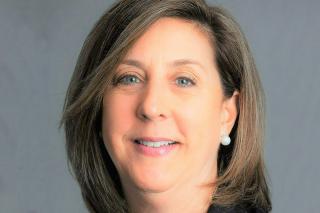For 30 years, Simmons has been providing specialized teacher training for employees at the New England Center for Children. Professor Christine Evans has witnessed the evolution of this program and the remarkable dedication of NECC teachers.
Based in Southborough, the New England Center for Children (NECC) is a renowned school for children with autism. With its superior reputation, families from all over the country send their children there for day and residential education. Founder Vinnie Strully established the Efficacy Research Institute in 1975, which was renamed as the New England Center for Autism (NECA) in 1986 and in turn was eventually renamed NECC. In 1992, NECC began a formative partnership with Simmons University.
Through this partnership, teachers at NECC receive specialized training from Simmons faculty, as well as experts in the field of Applied Behavior Analysis from NECC. Many of the NECC teachers come straight out of college, often with a degree in Psychology, but they do not have specific teacher training. Over the 30-year partnership, 1200 students have completed this program. Participants are hired first and they attend Simmons part-time while they work at NECC.
"It's a program specifically for employees of the NECC," says Christine Evans, Professor of Practice and Director of Off-site Education Programs. "Simmons comes to them. All the classes and their practicum come to them, and the requirements of the practicum are met through their teaching at NECC. Simmons supervisors observe teachers in their NECC classrooms. The NECC has set up a professional development building that is partially dedicated to classroom space to run the three-year Simmons program. We also have a full-time practicum coordinator and numerous adjunct professors who are experts in the field."
The program serves two functions: providing teachers with a license, as is required by the Department of Elementary and Secondary Education (DESE), and offering a master's degree. "Simmons goes above and beyond what the DESE requires," says Evans. "It is a major benefit for NECC employees, who currently enjoy free tuition. And it helps with employee retention, because the teachers are dedicated to staying at the school longer."
Moreover, the program now offers an autism specialization that will appear on a teacher's transcript. "The Simmons/NECC collaboration gives them an intensive training by leading researchers in the field of autism," says Evans. "We have 100% placement for careers. Every single student who graduates gets a job. They emerge from our program very well trained, and they can get a job anywhere. The combination of the NECC's reputation and Simmons' reputation makes candidates quite strong."
The NECC has now expanded with several satellite programs abroad. One of them is the Muhammed bin Rashid Center for Special Education in Abu Dhabi. Simmons is also affiliated with this institution, and runs different programs, both licensure and master's programs, in the United Arab Emirates.
For Evans, the pioneering autism education at NECC exemplifies how experience with autism is now a necessity. "Autism is on the rise, and is now 1 in 44 now, as announced by the CDC," notes Evans. She adds that "more children are being diagnosed early. When I was a teacher, kids were being brought in at 17 or 18 years old. Now we see toddlers and infants."
Evans' interest in autism education began early in her career. After majoring in education in college and completing an internship in special education, her first job was at NECC. "It was a turning point and I got hooked," she recalls. "It was the hardest and the best job I ever had. I have such incredible respect for the teachers at NECC that I supervise."
One of the most gratifying aspects of Evans' role in the NECC-Simmons partnership is witnessing how teachers interact with students with severe disabilities. "I see the level of care they give to these children. And during COVID it was remarkable. Many of these children did not go home during the pandemic. The teachers were working around the clock and were constantly exposed, but their dedication never wavered. They were there. If that is not dedication, I don't know what is. They give their heart and soul into this job, and you can't do this job unless you really love it."

